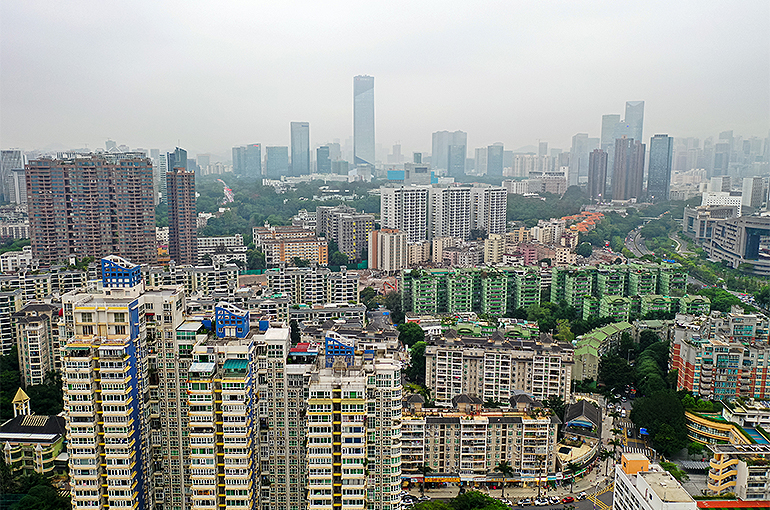 Shenzhen Allows Migrant Workers to Buy Home Right After Getting Household Registration
Shenzhen Allows Migrant Workers to Buy Home Right After Getting Household Registration(Yicai) Feb. 8 -- Shenzhen in China’s southern Guangdong province has eased its housing restrictions to allow migrant workers to buy a home in the first-tier city immediately after obtaining the household registration, also known as hukou.
Shenzhen’s residents with new household registration will not need to wait years of paying personal income taxes and social insurance in the city before being able to buy a house, the Housing and Construction Bureau of Shenzhen announced yesterday.
Shenzhen is allowing married permanent residents to buy two houses and single hukou holders to buy one, according to the city’s housing bureau. Meanwhile, migrant workers without a hukou can now buy a home in the city after paying personal income taxes and social insurance for three straight years instead of five.
Relaxing home purchase restrictions is a targeted adjustment Shenzhen is implementing after a great change in the supply and demand in the property market that can meet the needs of more migrant workers and effectively release potential purchasing power, according to the Leyoujia Research Center.
Sales of second-hand homes in Shenzhen fell to a 19-year low of 21,000 units in 2022, according to official statistics. Even though the figure rebounded to 33,000 units last year, it still remained at a very low level.
Chinese first-tier cities have all eased their housing curbs to different extents this year. First, Guangzhou lifted housing purchase restrictions on homes with a floor area of over 120 square meters. Then, Shanghai allowed unmarried residents without household registration to buy one apartment outside of the outer ring expressway. And finally, Beijing’s Tongzhou district eased its home-buying policy.
Mortgage rates are expected to be lowered in the first quarter after first-tier cities relaxed their housing restrictions, said Li Yujia, researcher at the residential policy research center of the Guangdong Urban and Rural Planning and Design Institute.
Relaxed policies, lower mortgage rates, as well as the introduction of the real estate financing whitelist, the property market may rebound this quarter from the previous one, as both supply and demand are expected to grow, Li added.
Editor: Dou Shicong, Futura Costaglione